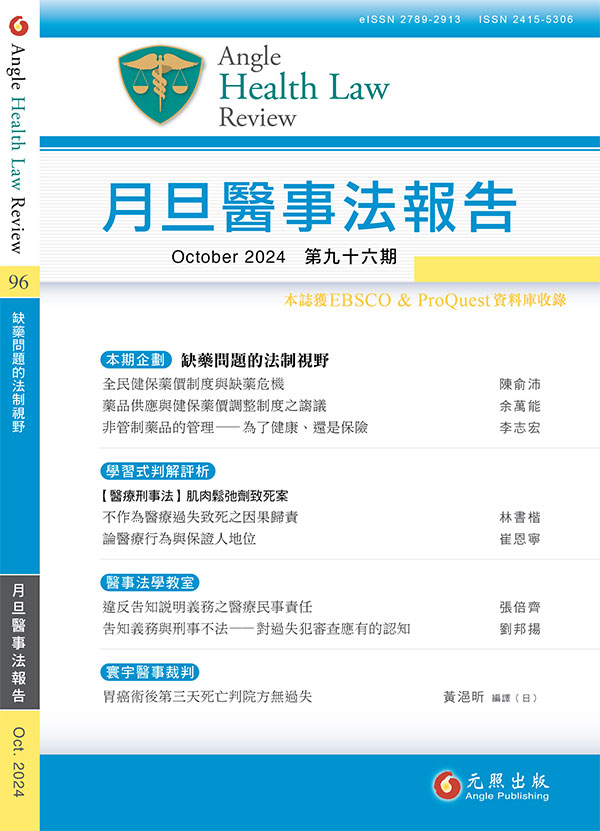全民健保藥價制度與缺藥危機【本期企劃】 試閱
Drug Payment System of National Health Insurance and Drug Shortage Crisis
臺灣雖有必要藥品不足供應之虞時的通報制度,仍陷缺藥危機,可能與健保藥價有關。健保藥價應以基本保障、支持國產學名藥及縮小藥價差為原則,考量藥商成本合理訂定,並允許自付差額。健保署可將藥費直接支付給藥商,解決藥價差,若有藥品短缺之虞時,直接要求藥商合理供應至各藥事服務機構,避免供應不均。再依比例自行負擔藥費,減少浪費藥品之動機,節省下來的藥費可用於引進新藥及提高專業勞務支付標準,提升醫療品質。
Although We have a reporting system for when supplies of essential medicines are in danger, it still faces a drug shortage crisis. This may be related to the price of drugs. The price of drugs should be set based on the principles of basic protection, support for generic drugs and narrowing drug price differences, and should be reasonably set taking into account the cost of drug manufacturers, and allow for out-of-pocket payment of the difference. The National Health Insurance Department can pay drug fees directly to drug dealers to solve the problem of drug price differences. If there is a risk of drug shortage, it can require drug dealers to reasonably supply drugs to various pharmaceutical service institutions to avoid uneven supply. Secondly, they will pay for the medicines themselves in proportion to reducing the incentive to waste medicines. The saved medicines can be used to introduce new drugs, improve professional labor payment standards, and improve medical quality.
007-022






